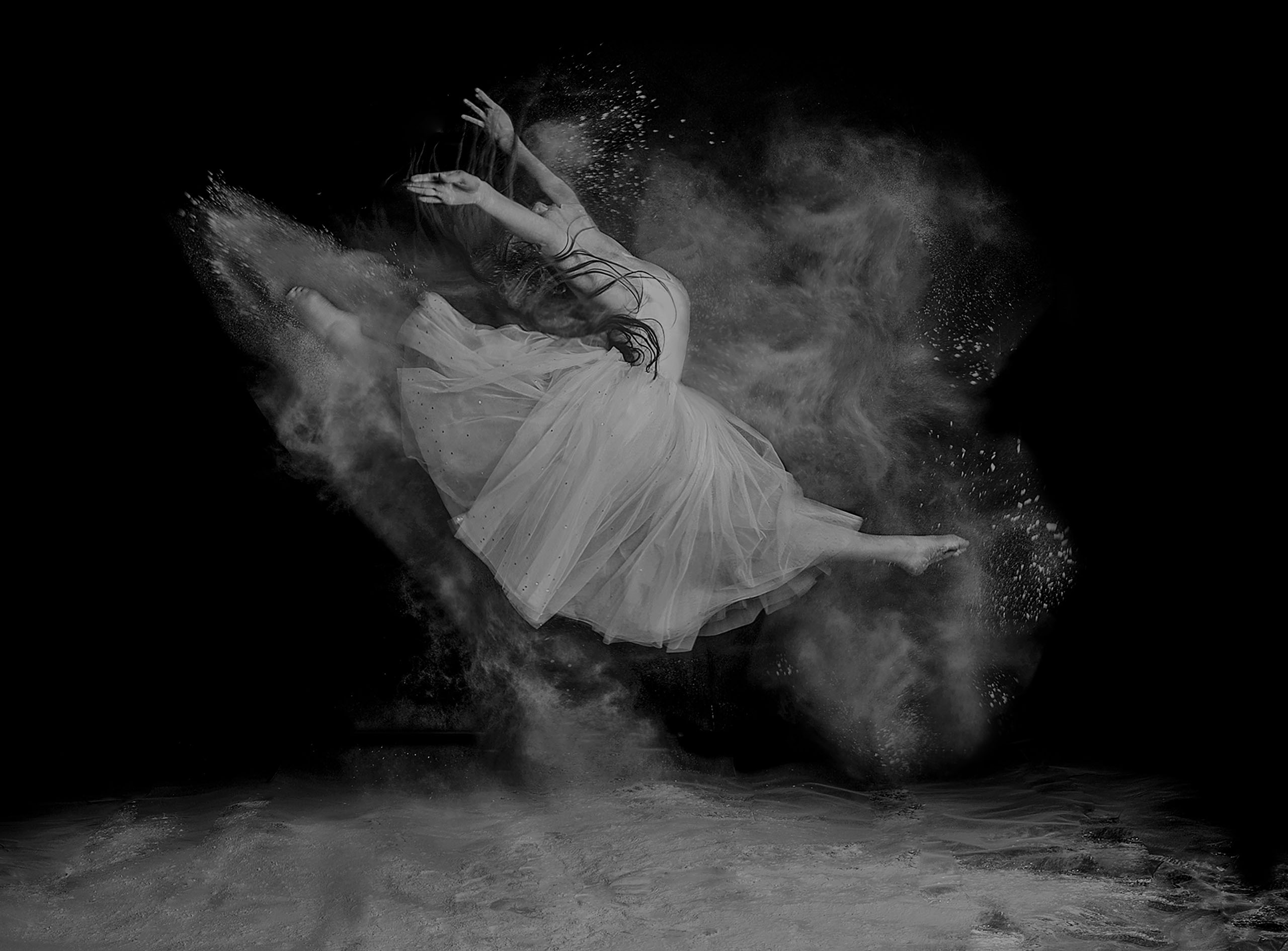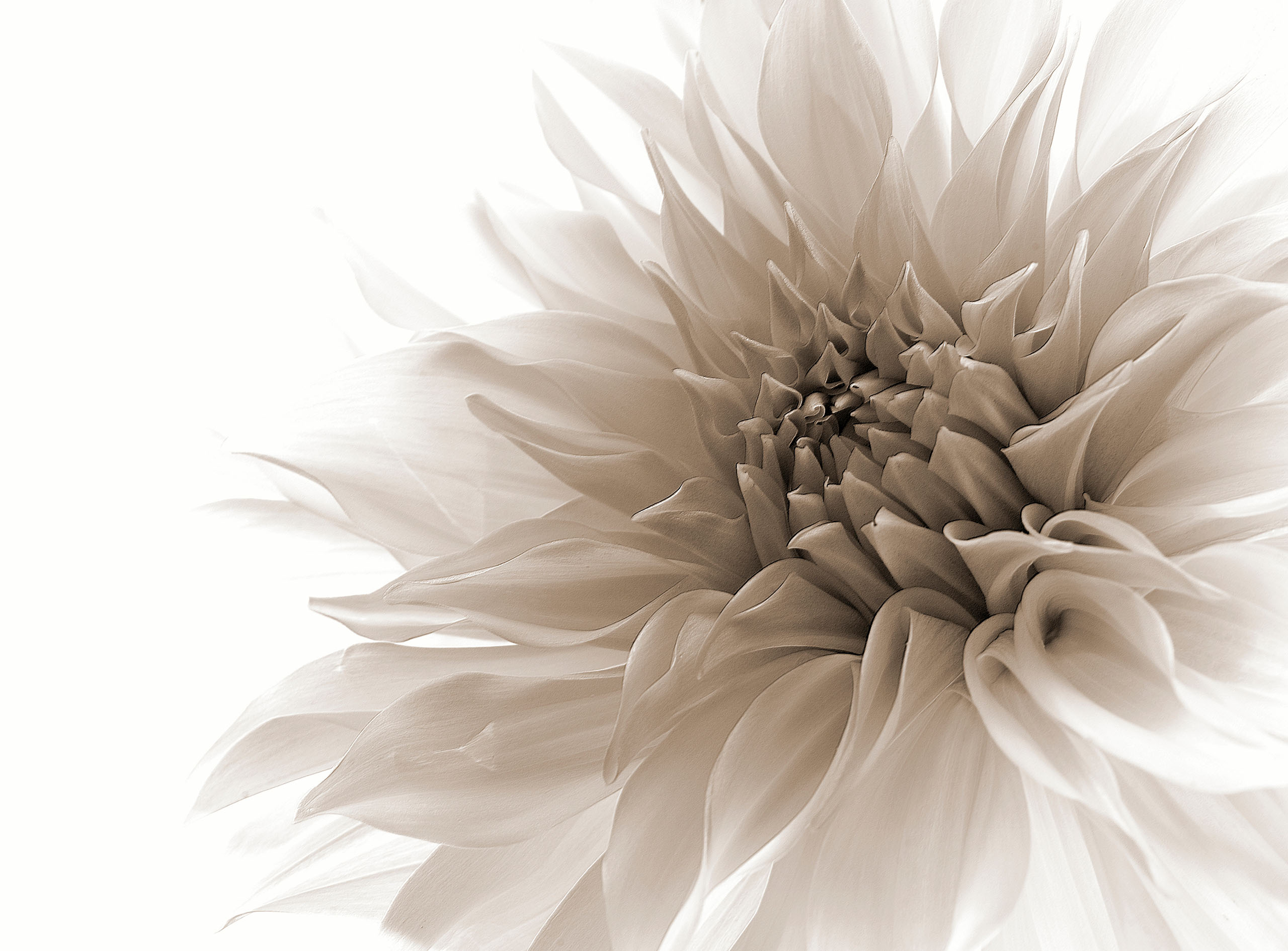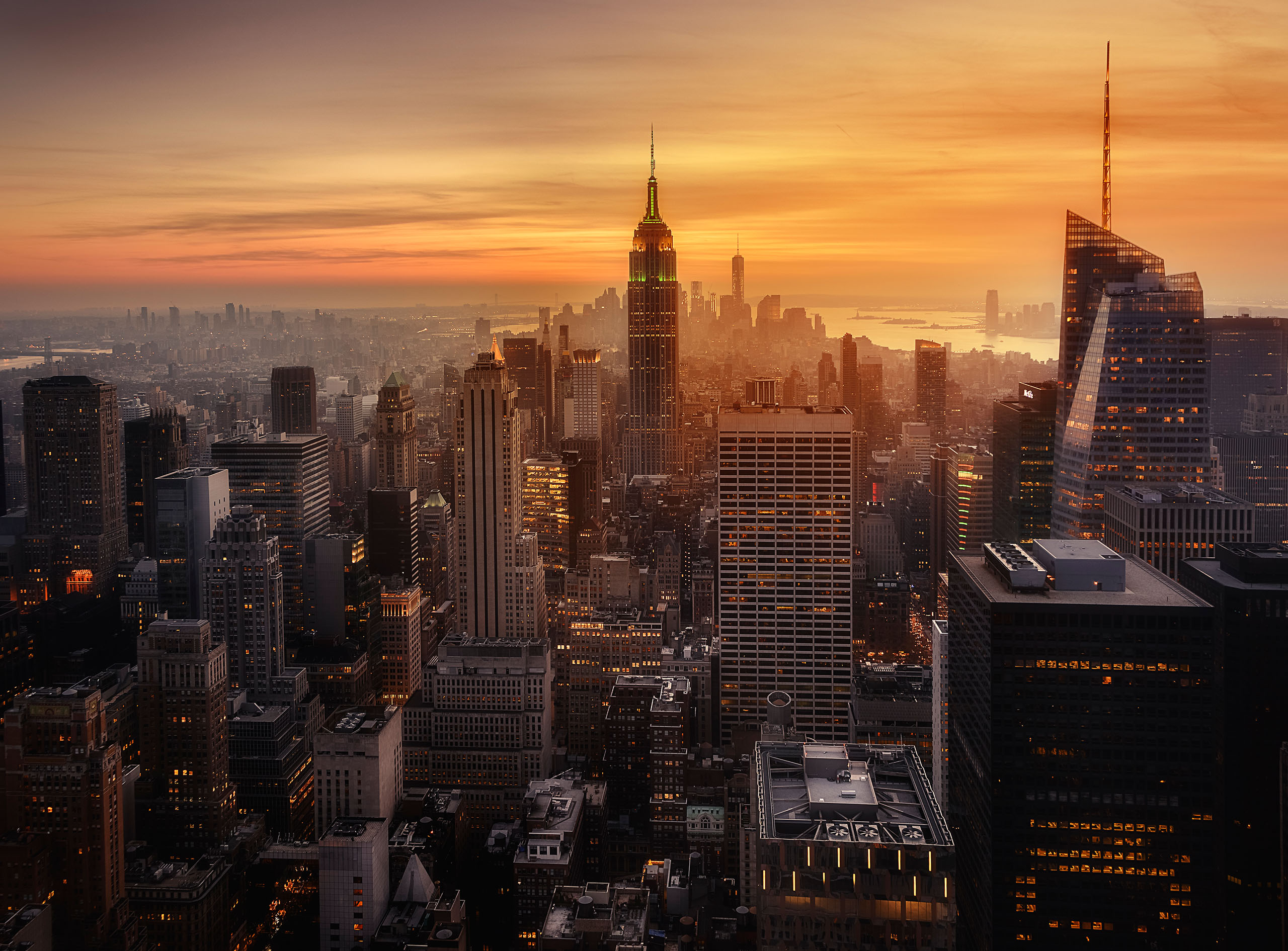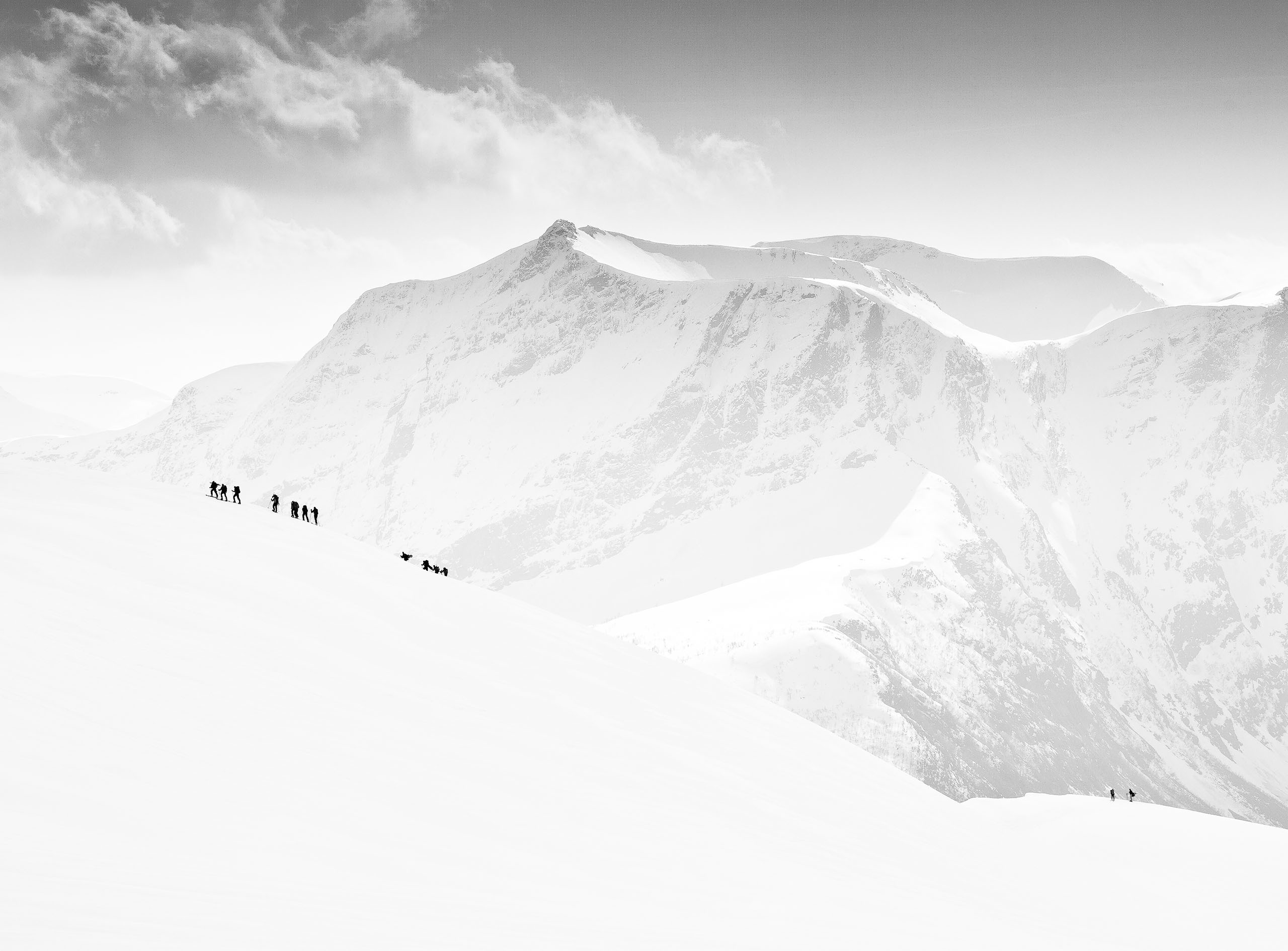SEARCH






|
|
|
|


by Editor Marius Cinteză
“I approach landscape photography as a creative art form. For me photography is all about the way of transmitting a vision, an impression, and not about the strict reality.” - Zsolt Andras Szabo
Zsolt Andras Szabo is an appreciated Romanian photographer and a dentist by profession. He is drawn into the mountain landscape photography who brought it to a particular form of fine art. His works reveal extreme care for excellent composition and vibrant emotion by using multiple plans overlapping and light emphasis. The interest for mountain nature appeared early in the childhood times and influenced his future passion for photography, constantly developed by self-effort and practice and inspired by the paintings from J.R.R Tolkien books or Marc Adamus photographs. His mission is to offer the viewers with a different perspective over the mountain scenery because he's of the opinion that the biggest value of a photograph is in the part that the author adds on top of what the camera is able to capture.
I invite you to discover more about Zsolt and his remarkable mountain landscape works in the interview below!
Zsolt, first I would like to thank you so much for taking your time to answer my questions! To begin, please introduce yourself shortly and tell us more about you, your hobbies or other jobs/projects you are involved in!
Thank you for your interest in my photographs! I currently live in Cluj Napoca city (Romania), I am a dentist as an original profession, and photography is for me a form of artistic expression. My only hobby and my interest focuses on the landscape genre. Or maybe a little more than a hobby…
For many of us the photography is either a hobby or a way of life. How would you define your relationship with the photography?
I’ve never made any effort to earn money out of photography, and probably I never will, and that makes me an amateur basically. But, that don’t keep me from taking photos just like the pros, or to consider it my way of life, especially if I consider the amount of my time and my thoughts what it takes. I love my profession and I love photography to remain for me only an artistic activity, this way I manage to keep it with very low levels of creativity compromise.
What would be the most important experience so far that has influenced your steps in photography?
I was always a visual type, and my influences came from many directions. First time I saw cliffs and mountains in my childhood and first time I saw paintings made after Tolkien’s books, those were really shocking moments for me (it was before the LOTR movies). But still, I didn’t believe that kind of visual expressiveness can be introduced in photography until I saw the works of Marc Adamus, who I consider even now after 13 years and several shifts of trends by far the biggest figure of landscape photography.
When have you realized that you would like to follow a career in photography?
I have never had a career in photography. I’m in photography since around 2002-2003, and without this much information, inspiring photographers and digital cameras evolution the process was real slow. I didn’t know at that time anybody around me, neither indirectly, who was a landscape photographer. It was around 2011-2013 when landscape photography began to be more “in fashion” among other genres and also when I reached a level where I could teach photography in workshops. I don’t like and don’t believe in photography workshops, and I examined closely the situation how can I follow my artistic pursues with less compromise: keeping my original profession, or to switch to professional photography. I’ve chosen the former, and still I believe it was a good decision.
How do you maintain and grow your passion for photography?
I don’t believe that is possible nor necessary, at least for the artistic part. If the interest is decreasing, there is nothing more to do. Maybe only as a profession or a way to earn money, but definitely not as a form of art. Passion keeps it alive, and you cannot control.
Can you please describe in a few words your photographer philosophy and mission?
To my eyes the biggest value of a photograph is in the part that the author adds to it; it is not definitely there in the landscape, but it is what the photographer is observing and is able to show to the viewers (I don’t mean manipulation, of course). Unfortunately, it cannot be easily seen and the viewer have to develop a certain level of understanding in this respect. Nowadays the fact that people are looking at images on smartphones make things for us, the photographers, much more difficult, because at that size the essence is not visible. Furthermore, I believe that the world doesn’t need a millionth picture of certain places in Dolomites, Iceland, Lofoten, Patagonia, etc. My mission is to show that not only the location is what makes a good image and to offer a different view than usual of that location.
Zsolt, you have self-educated into photography and never attended photography lessons or courses. How important is the self-effort to become a better photographer day by day?
Self-effort is a decisive factor and it cannot be replaced or compensated by lessons or workshops. Hard working is actually just as important as the talent, because there will be no remarkable result if any of them is missing.
Landscape photography is a preferred genre among many photographers today. What do you think that makes your works different?
I believe my photographs are different because while wandering in nature and photographing I try to record my impressions about it (not literally the landscape itself), and only when I feel that there is something to show, something to tell about. If I succeed in this, it already means that it will be different. From many taken pictures, I only show what I consider that it is capable to convey something to other people. What draws me to landscape photography is the landscape itself, the way of life it takes and the good times spent wandering in the mountains.
Zsolt, you are of the opinion that to shot extraordinary landscape photography does not necessarily mean to travel thousands of kilometres for “iconic”, over-photographed locations. What do you think is the contribution of a photographer to a make special, impactful works of the landscape around him?
To make a meaningful landscape photograph, one must develop a certain relationship with the photographed location, and actually must express this relationship in the photograph. Visiting a location offered for granted by other photographers, and hopping out of the car to snap a shot will not make you a valuable photographer on long term. An expert will immediately notice this just by looking on the photo. Still it can easily earn appreciations in social media, but it has no value. This relationship will very likely develop along with the joy of exploring and excitement of discovering new locations, especially if you must work hard to get there, and obviously, if you spend more time there. Everybody has more chance to take a valuable photo in a location closer to the place they live than in an expensive, distant travelling.
Where do you look for to find inspiration for the stories you want to convey by your photo works?
The works of great photographers around the world still inspire me, but this influence is perhaps decreasing with time and experience accumulated. Still I spend a great amount of time daily on social media and photographic platforms to explore new images. But the places I like are the main inspiration for me, more and more, I just need to manage to spend there as much time as possible.
What do you think are the top three secret ingredients for a remarkable landscape photography?
1. An ability to observe and to convey through a photograph without effort what the landscape “speaks” to you, a skill that can be developed by an enormous amount of work, along with technical perfection.
2. Learning how to get to the right place in the right time. What that means - it depends, can be different for every person.
3. Understanding light and learn to render light in a photograph. This will decide very much the level you can reach.
You are of the opinion that the post processing is an important step that every photographer should take into account before presenting the final result to the viewers. Can you please tell us something more about your workflow for landscape photography?
I don’t think it is possible to create a valuable landscape photograph without a certain amount of post-processing. My workflow consists of two main phases: raw processing in Camera Raw and finishing in Photoshop, roughly I would say the first one is about 1/3 of my processing.
I begin in Camera Raw and check if the photo is technically acceptable, adjust lens correction, sharpness. Then I try to recover the details as much as possible, adjust contrast and saturation levels and white balance - at these settings always keeping in mind that all of them will be fine-tuned later on selectively. Finally, I open it in Photoshop and fix everything I don’t like, trying to move away from what the camera sees and get closer to what my eyes have seen. I use layers and luminosity masks for optimal selective working. In the end I use to enhance very slightly what I liked the most in that particular phenomena or location.
Your “Monochrome” series is absolutely stunning by mood, light and minimal composition! Can you please share the story behind this project?
Thank you! The “Monochrome Landscapes” is one of my continuously developed projects but for me the colour photography will always be on the first place. Basically, I can say that in this project I include those photographs where I managed to have a composition I like very much but I wasn’t lucky enough to catch it with a special kind of interesting colourful light. But not all of them will make it, because monochrome photographs need as well a different but special kind of light. Here I focused on the role of light in composition, stripped it to the basics in the lack of colours.
What do you think are the main challenges of landscape photography?
To get in the right place at the right time, because special light, mood and nature phenomenon last only a few moments and they are useless if you are not in an interesting place or if you are not entirely prepared. This meaning much more time needed for evolution compared to other photography genres, because you have only a few seconds of chance to improve and continue. You have to develop a certain kind of attention when you look in the camera, to be careful to every details that you usually observe only at home on a big monitor. Also you need to pay attention to the composition in the harshest photographing conditions including wind, frost, blizzard, and physically tired of hiking. No wonder I came to the conclusion that landscape photography is the most difficult genre (I mean only if you want to do it at an artistic level).
Many are of the opinion that the gear is not very important when the passion for photography is strong. However, can you please share with us what is the gear do you use (camera, lenses, tripod,etc.)?
I definitely agree that. For example, in Romania almost half of the really good landscape photographers uses entry level cameras and lenses. Gear only can make it more easy and doesn’t have any other main role.
I don’t prefer any brand over the other, and I use to switch brands in 6-7 years time, using what is most adequate for my type of work. Currently I use a Nikon D810 with only two lenses to keep weight at minimal (Nikon 16-35/4 and 70-200/4) and a small Gitzo tripod.
“Thin air” is one of your most remarkable work art. Please tell us the story behind it.
While it is not really a personal favourite to me, I must agree that it is one of the most remarkable. I was really surprised to see how popular it became, especially among the top class photographers and experts. I would not guess it when I took and processed it. I live in an area with very low photographic potential, and this image was taken in a location very far from being spectacular, actually in the forest of the neighbour village. The fact that it was so appreciated is for me a proof that objectivity among experts do exist and that many people can see the approach behind the location, it reinforces my philosophy that not the location is what makes a great photograph.
Who are your favourite photographers or mentors whose works have influenced you and your photography?
I would say that paintings from J.R.R. Tolkien books and Marc Adamus photo works influenced me.
Now, since we almost reached the end of this interview, I would kindly ask you to share with us your future plans or photographic projects you would like to involve in.
Not so much besides to continue what I already do. I have a whole series printed in large sized fine art quality and I should organize an exhibition for it. But I have no clear plans, only ideas. I will keep on checking back to my favourite locations in Romania’s mountains. This year I also plan to explore new locations, not so photographed places from Norway and Caucasus.
 | Write |
 | Alessandro Traverso PRO Splendid works, congratulations .
Thank you so much Szabo,
Thank you so much Yvette! |
 | Yvette Depaepe CREW And thanks to Marius for leading this article! Glad with your appreciation, Alessandro! |
 | Alessandro Traverso PRO L'm sorry, thank you very much Marius! |
 | Szabo Zsolt Andras Thank you very much! |
 | Marius Cinteza CREW Alessandro, no worries! Thank you for your appreciation! Have a great day! |
 | Judy Tseng PRO so beautiful images |
 | Szabo Zsolt Andras Thank you! |
 | Peter Svoboda MQEP CREW Beautiful work Zsolt, many compliments! Very nice selection of pictures and intersting reading as well :) |
 | Szabo Zsolt Andras Thank you very much, Peter! Best regards! |
 | Marius Cinteza CREW Many thanks, Peter! Have a great day! :-) |
 | Lukasz Kaluza Congrats! :) |
 | Szabo Zsolt Andras Thank you! |
 | Hans-Wolfgang Hawerkamp PRO great collection of much remarkable images. Congratulations Zsolt and thank you so much dear Yvette |
 | Yvette Depaepe CREW My pleasure, Hans-Wolfgang. All honour goes to Zsolt and to Marius who led this great interview. Have a fine weekend, dear friend! |
 | Szabo Zsolt Andras Many thanks! |
 | Yvette Depaepe CREW Splendid work expressing the majesty of mountain nature, Zsolt. Congratulations for being a 'Featured Photographer'. Thanks for your kind collaboration and thanks to Marius for leading this fine and interesting interview. Cheers, Yvette |
 | Marius Cinteza CREW Thank you, Yvette! It was my pleasure to work with Zsolt for this material revealing his amazing works! |
 | Szabo Zsolt Andras Thanks a lot! |